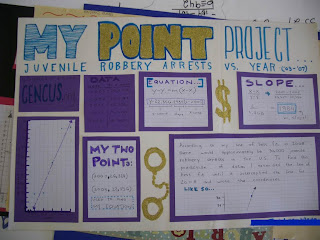Maybe this will motivate me to actually get through the differentiation book. There are 18 chapters, and I like her writing style and attitude. Invariably, though, for me, with all good ideas I read about, I'm all "Great Idea!" and then it's a crap shoot as to whether I implement it. So maybe if I talk/blog it out, it'll have a better chance of going into action.
The first chapter can be summarized as "there were no good old days of teaching". Way back in the late 1800's only a teeny percentage of boys went to and completed high school. And it seems the debate was always on about the purpose of high school and what should be taught and such. Here's
a site with one synopsis.
So what does this have to do with differentiation? I guess in the early days only a select type of kid went to high school and only a few graduated. Now we're trying to get everyone to be successful, so that means we have all levels of kids in our classroom, not just the select few. And not everyone learns the same way.
She has one statistic that by 1990 only 38% of the nation had graduated from high school. Wow. Page 11 of
this document breaks down graduation rates by state in 1990 and 2000. Too many percentages in the 60's and 70's. So I guess if kids weren't cutting it in school or the school wasn't serving them, then off they went. These days, I'm guessing most schools would not make "adequate yearly progress" if these were the numbers, and the school would be a potential candidate for closing.
So, this sort of makes the case for differentiating for students who need more/different ways of learning instead of just listening and notes. It's not making a case for the "fast learners" and how to differentiate for them. We have to keep both in mind.











